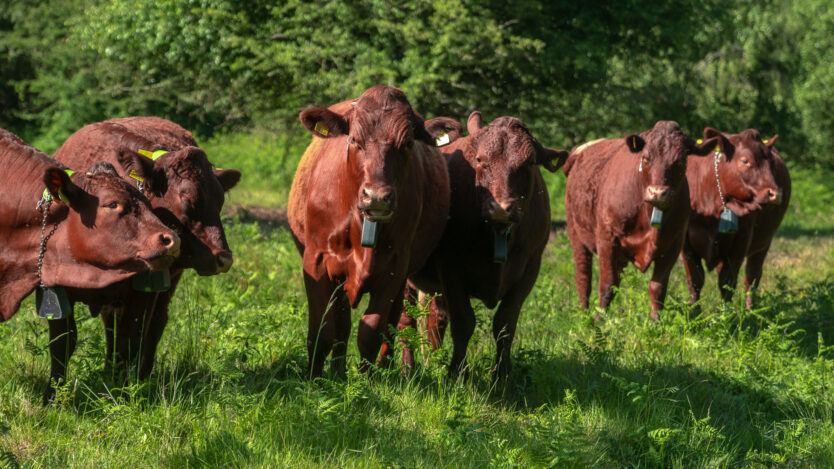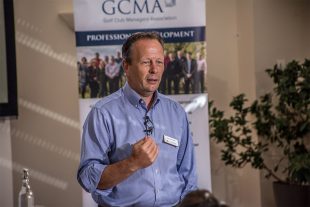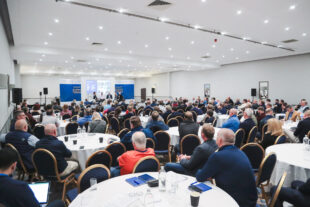Berkhamsted Golf Club has reintroduced cattle grazing on its estate in a “great example of a golf club acting responsibly”.
If you’re a habitual visitor to Berkhamsted Common – and why wouldn’t you be? It’s so beautiful up there – then you may see something new this summer.
Up until World War II, cattle grazing on the common were a regular sight, but they didn’t return after the war. Berkhamsted Golf Club has now restored this most rural and English of all sights by grazing a small herd of Devon red cows on its estate.
The first six animals arrived in mid-May, and each is wearing a special GPS collar which enables the club to control where they graze.
“We have been looking forward to the cows’ arrival for quite some time now!” said Club Manager Howard Craft. “As custodians of the common we have obligations which cover the entire ecosystem and not just the golf course – which covers less than a third of the whole area.
“We have received fantastic advice from the experts, and the cattle will help Berkhamsted residents and visitors to continue to enjoy using the common for generations to come.”
The initiative is part of a regenerative farming project which the golf club, as custodians of the 520-acre Berkhamsted Common estate, has developed with the assistance of Chilterns National Landscape, and the Herts & Middlesex Wildlife Trust.
“As custodians of the common we have obligations which cover the entire ecosystem”
Club Manager Howard Craft
“The golf club’s approach to managing the conservation aspects of the area has been brilliant,” said Gareth Clay, Farming & Protected Landscapes Officer for Chilterns National Landscape. “The common has many important ecological and archaeological features – it is a wonderful piece of land rich in biodiversity.”
Tim Hill, Conservation Manager at Herts & Middlesex Wildlife Trust, said: “Cattle or other grazing animals can help prevent the succession to woodland or scrubland, and this is important when you have an area so rich in natural grasslands and heathlands as you find on Berkhamsted Common.
“Grazing helps to promote biodiversity, and in doing so Berkhamsted Golf Club will be helping to restore one of Hertfordshire’s rarest habitats, and there are numerous other benefits – flowers can seed, invertebrates thrive, and nesting birds arrive.
“Every little helps in our ecological vision for Hertfordshire, and we have a strong, trusted relationship with the golf club team. This is not just locally important – it is a nationally significant initiative which is a great example of a golf club which is acting responsibly.”
Howard added: “This is a great example of how modern technology can be married with traditional farming commonsense, to produce a wonderful situation for the whole Berkhamsted community to enjoy.
“Berkhamsted Common is one of the finest pieces of land in England, and our new herd of Devon Reds are already adding their own special beauty to the area.”



